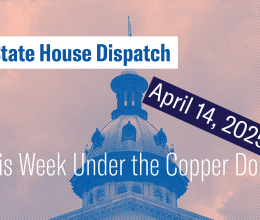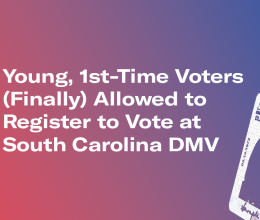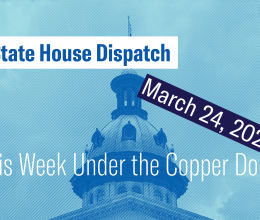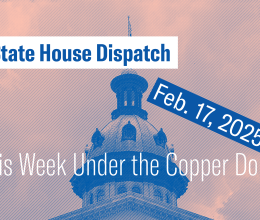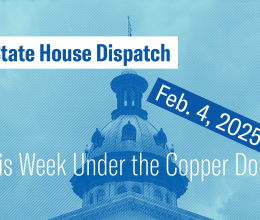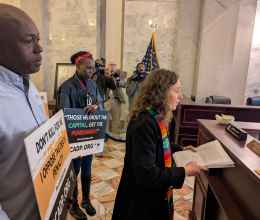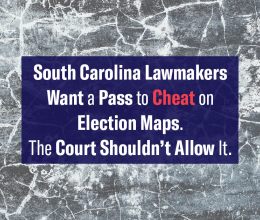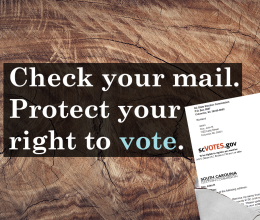
FOR IMMEDIATE RELEASE
CHARLESTON -- The ACLU of South Carolina today released a blueprint for COVID-19 relief in South Carolina. The blueprint urges decision makers to ensure the burdens of the pandemic do not unfairly fall on South Carolina’s most vulnerable communities and that all responses are rooted in science and public health and are no more intrusive on civil liberties than necessary.
“COVID-19 has made it harder to ignore our failures as a society,” said ACLU of South Carolina Executive Director Frank Knaack. “This blueprint offers concrete ways for South Carolina decision makers to minimize the harms made worse by this pandemic.”
The blueprint outlines three overarching issues and includes specific policy recommendations for each. Primary issues include protecting incarcerated people, ensuring access to the vote, and minimizing disproportionate negative impacts for historically and structurally oppressed communities.
Seven of America’s ten places with the largest COVID-19 outbreaks are correctional institutions, and a new epidemiological model shows that COVID-19 could claim the lives of approximately 100,000 more people nationwide than current projections stipulate if the population of incarcerated people is not dramatically and immediately reduced. To prevent the worst outcomes associated with COVID-19 making its way through correctional institutions, South Carolina must immediately reduce prison and jail populations. Outlined policy recommendations include categorical release of certain classes of people incarcerated in South Carolina’s prisons and a three-pronged approach to reducing the state’s jail population which includes releasing on a personal recognizance bond all but the very few people for whom pretrial detention is absolutely necessary, ceasing the enforcement of marijuana possession laws, and prohibiting the use of arrests unless necessary to prevent imminent and serious bodily harm to another person.
To ensure access to the vote, the blueprint recommends expanding beyond last week’s temporary legislative relief to guarantee no excuse voting by mail throughout 2020 elections regardless of whether or not the governor has declared a state of emergency. Additionally, ACLU-SC recommends that the state waive the requirement that absentee ballots must be signed by a witness. In addition to endangering the health of those who live alone and are most vulnerable to critical illness or death from COVID-19, the South Carolina Election Commission itself professed that this mandate “offers no benefit to election officials.”
To minimize disproportionate negative impacts for historically and structurally oppressed communities, the blueprint outlines a policy strategy which includes ending wealth-based driver’s license suspensions, prohibiting evictions and foreclosures, and ensuring access to equal education and privacy.
“While the immediate steps that South Carolina must take in the face of COVID-19 are clear, including reducing the number of people in our prisons and jails, expanding broadband access, and preventing evictions and foreclosures, this blueprint is just a starting point,” said Knaack. “The harmful outcomes we are witnessing on a daily basis are the natural result of a system of racist policies and economic exploitation that has governed our society since the beginning. Lasting solutions will require us to invest in people instead of police and prisons - to ensure that every child receives a quality public education, that every worker earns a living wage, that every person has a roof over their head, that all people have comprehensive healthcare. Lasting solutions will require us to finally build a society where ‘We the People’ means everyone.”
The blueprint can be found here.

